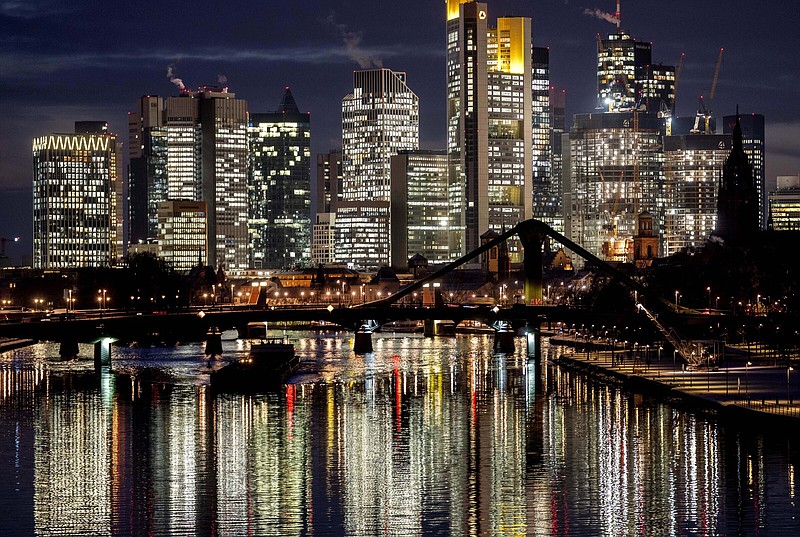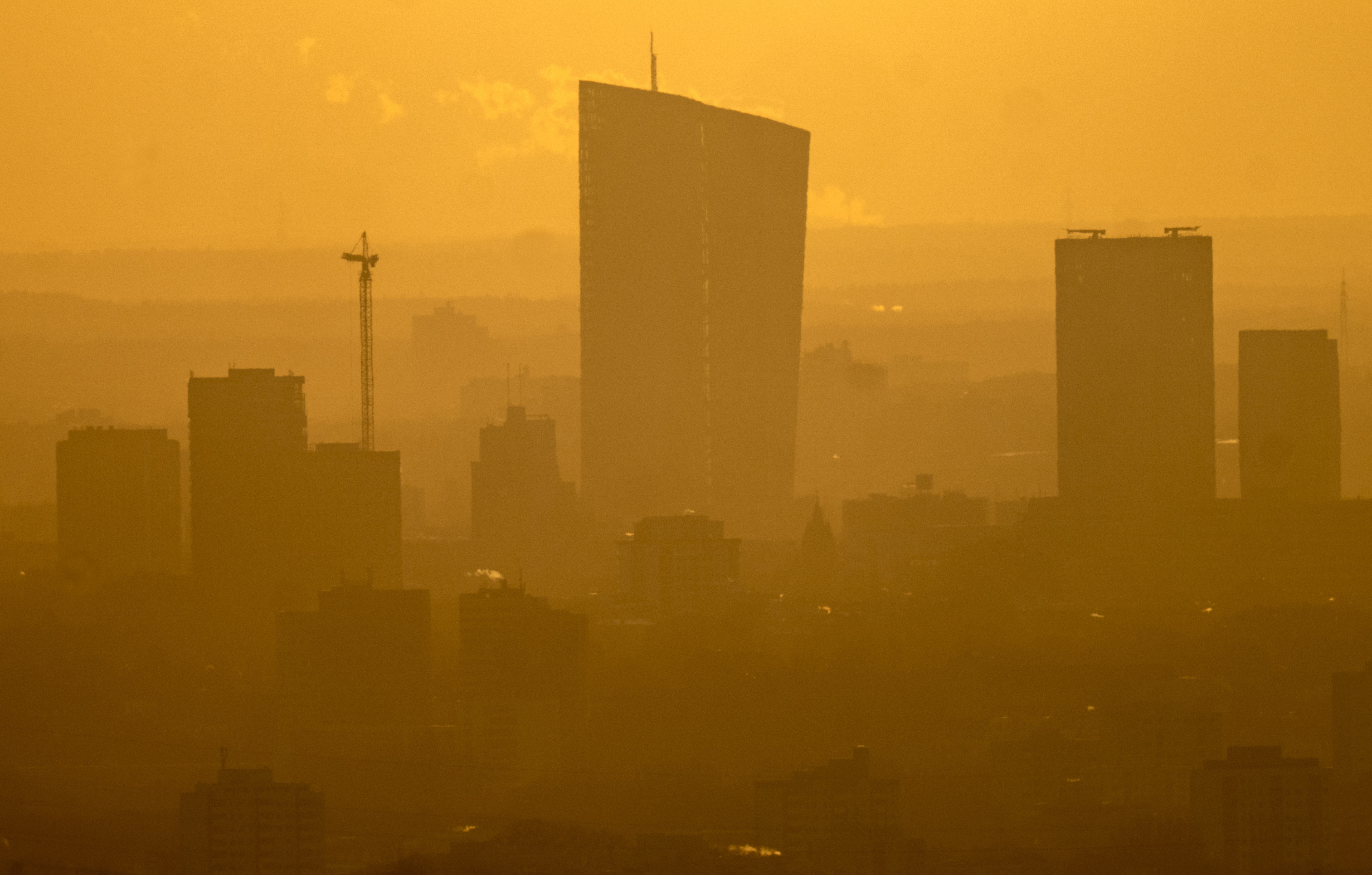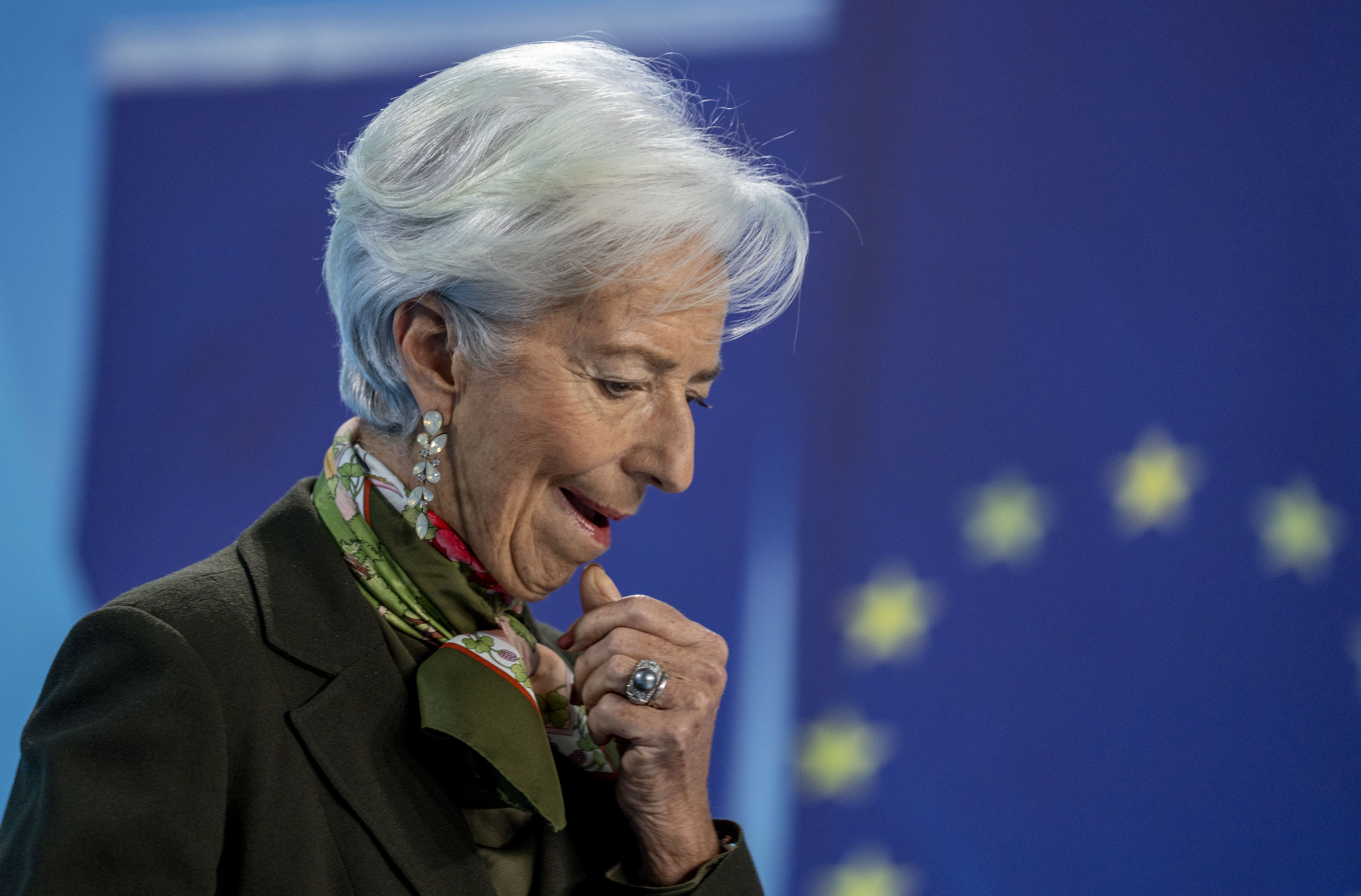FRANKFURT, Germany -- The European Central Bank chugged ahead with another outsize interest rate increase Thursday and vowed more will follow, underlining its drive to subdue inflation even as its economy slows.
The Frankfurt-based bank raised its key benchmark rates by half a percentage point and said policymakers intend to make a similar move in March. Eurozone officials are moving aggressively to choke off price spikes that have slowed from record highs but are still hurting households in the 20-nation currency bloc.
The bank, which also approved a half-point increase in December, "will stay the course in raising interest rates significantly at a steady pace," European Central Bank President Christine Lagarde said at a news conference Thursday.
"Now you will say, 'Well, yes, but what about after March? Does that mean that you have reached the pinnacle or the peak?'" she later added. "No, no, no, no. We know that we have ground to cover. We know that we are not done."
The Bank of England also went big Thursday with a half-point increase, but the U.S. Federal Reserve pulled back a day earlier, slowing its campaign against inflation to a quarter-point increase as central banks around the world reassess approaches to tackling price spikes that have started to slow.
The European Central Bank sent a "relatively determined message" with the "unusual" announcement of the March increase, said Nick Bennenbroek, international economist at Wells Fargo Economics. Bennenbroek said he expects the March increase would be followed by a quarter-point increase in May that would mark the peak for rates in the eurozone.
Central banks can hold back economic growth if they go too far, potentially triggering a recession. With the European Central Bank moving quickly, Lagarde acknowledged that "economic activity has slowed markedly" since mid-2022 and that conditions are expected to stay weak as demand slows worldwide, while Russia's war in Ukraine only raises uncertainty.
The eurozone's economy grew just 0.1% in the last three months of 2022. But Lagarde was optimistic overall, pointing to easing supply chain backups and Europe's natural gas supply becoming more secure after Russia cut most flows to the continent last year.
"The economy has proved more resilient than expected and should recover over the coming quarters," she said.
Compared with the Fed, the European Central Bank's moves reflect a later start in rate increases -- it began raising rates in July, four months after the United States made its first move. That means more ground to make up.
European Central Bank officials may have sought to underline their resolve after "many market participants did not entirely believe the bank's determined stance," said Michael Holstein, chief economist at DZ Bank.
Some market rates indicated traders were betting the European Central Bank would reverse course later this year and into 2024 because of slumping growth. The bank appeared to warn against that scenario by saying it would keep rates "restrictive over time" to contain inflation.
Higher interest rates makes it more expensive for consumers to borrow for purchases such as homes and cars and for companies to fund expansions. The rate moves by central banks are designed to cool demand for goods that push up consumer prices, which increased 8.5% in the eurozone last month from a year earlier.
While still high, the annual eurozone rate has dropped for three straight months after reaching a record 10.6% in October.
High energy prices tied to the war in Ukraine have driven up utility bills throughout the region for households and businesses, which have passed on those extra costs to consumers. That's been the major driver of European inflation, which is well above the European Central Bank's target of 2%.
Workers across continental Europe and in the United Kingdom have been holding strikes and protests to demand that their pay keep pace with the soaring cost of living.
European governments have released billions of dollars in relief to shield consumers from high natural gas prices, which have fallen from record highs last summer as Europe found suppliers outside Russia and a warmer-than-expected winter curbed fears of shortages and rationing. But prices remain three times higher than when Russia massed troops on the border and invaded Ukraine in February 2022.
"It is important to now start rolling these measures back promptly in line with the fall in energy prices and in a concerted manner," Lagarde said.
While interest rate increases are the usual cure for inflation, they also mean people are facing sharply higher mortgage rates to buy homes and banks that are becoming more restrictive with loans.
European Central Bank officials say decisive action now will prevent inflation from becoming ingrained in wages, prices and consumer expectations. Bank officials say economic growth is expected to recover more strongly later in the year, forecasting a 0.5% increase in output -- still less than the 3.5% reported in 2022.
The European Central Bank's benchmark for lending now stands at 3%, and the rate on deposits left overnight by commercial banks is 2.5%.



